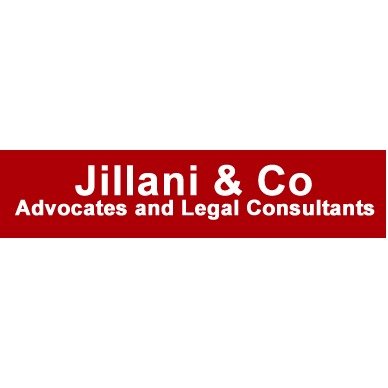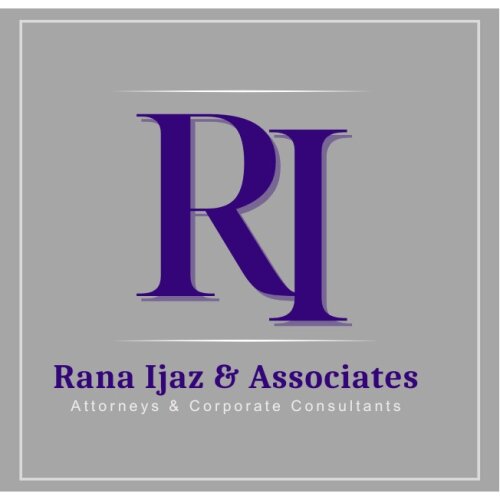Best Renewable & Alternative Energy Lawyers in Lahore
Share your needs with us, get contacted by law firms.
Free. Takes 2 min.
List of the best lawyers in Lahore, Pakistan
About Renewable & Alternative Energy Law in Lahore, Pakistan
Renewable and alternative energy are increasingly important sectors in Lahore, Pakistan, as the country strives to meet growing energy demands and address environmental concerns. Renewable energy refers to energy from natural sources that are constantly replenished, such as solar, wind, hydro, and biomass. Lahore, one of Pakistan's largest cities, is at the forefront of promoting clean energy projects to reduce reliance on fossil fuels and decrease carbon emissions.
Laws and regulations governing renewable and alternative energy in Lahore are designed to promote investments, ensure environmental protection, and establish clear guidelines for the installation and operation of renewable energy systems. Whether you are looking to install solar panels on your home, invest in a wind energy project, or become involved in the alternative energy sector, understanding the legal framework is crucial to ensure compliance and maximize benefits.
Why You May Need a Lawyer
Navigating the legal landscape around renewable and alternative energy in Lahore can be complex. People may require legal help for several reasons, such as:
- Securing permits and licenses for renewable energy installations, such as solar panels or wind turbines.
- Drafting and negotiating contracts with suppliers, installers, or third-party energy consumers.
- Understanding compliance with local and national environmental regulations.
- Resolving disputes with energy companies, neighbors, or government authorities.
- Managing land acquisition or property rights for larger energy projects.
- Benefiting from government incentives, subsidies, or tax benefits for renewable energy investments.
- Ensuring safety standards and adherence to technical requirements.
- Protecting intellectual property for innovations in renewable energy technologies.
A lawyer with expertise in renewable and alternative energy can help you understand your rights and obligations, avoid costly mistakes, and protect your investments.
Local Laws Overview
In Lahore, renewable and alternative energy laws and policies stem from both provincial and federal legislation. Key legal frameworks impacting renewable energy development in Lahore include:
- Alternative and Renewable Energy Policy: The national policy promotes the development of renewable energy projects, provides incentives, and sets targets for clean energy production.
- Punjab Energy Department Regulations: At the provincial level, the Punjab Energy Department oversees licensing, safety, and compliance for energy projects. Local authorities in Lahore often play a role in issuing approvals for rooftop solar and other installations.
- Net Metering Regulations: The National Electric Power Regulatory Authority (NEPRA) allows consumers to connect their renewable energy systems to the grid through net metering, enabling them to sell excess energy back to the utility company.
- Environmental Protection Laws: Renewable energy projects must comply with the Punjab Environmental Protection Act, ensuring that installations do not harm the environment.
- Land and Property Laws: For larger projects, land acquisition and zoning requirements are also relevant and require compliance with local property laws.
Staying informed about these laws is necessary for anyone interested in developing, investing in, or benefiting from renewable and alternative energy in Lahore.
Frequently Asked Questions
What types of renewable energy are commonly used in Lahore, Pakistan?
Solar and biomass are the most commonly used renewable energy sources in Lahore. Wind and hydro projects also exist but are less common within the city limits.
Do I need permission to install solar panels on my property in Lahore?
Yes, you generally need to notify local authorities and, in some cases, obtain specific permits, especially for larger or commercial installations. Consultation with relevant government departments is recommended.
What is net metering and how does it work in Lahore?
Net metering allows you to connect your solar or other renewable energy systems to the national grid. Excess electricity produced by your system can be sold back to the grid, reducing your electricity bills.
Are there incentives or subsidies for renewable energy in Lahore?
The government of Pakistan, through various policies, offers incentives such as tax exemptions, tariffs, and net metering programs to encourage the adoption of renewable energy.
Can businesses and industries invest in large-scale renewable energy projects?
Yes, businesses and industrial entities can invest in large-scale renewable projects. They must follow regulatory procedures for licensing, land acquisition, and compliance with safety and environmental standards.
What legal challenges might I face with a renewable energy project?
Potential challenges include obtaining permits, land and zoning issues, compliance with safety and technical standards, and disputes over grid connectivity or power purchase agreements.
Is it necessary to hire a lawyer for a residential solar installation?
While not mandatory, hiring a lawyer can help ensure you comply with all legal requirements, benefit from government incentives, and avoid potential disputes during installation or operation.
What is involved in securing land for a renewable energy plant near Lahore?
Land acquisition involves verifying ownership, ensuring compliance with zoning laws, obtaining environmental approvals, and addressing potential community concerns.
Who regulates renewable and alternative energy projects in Lahore?
NEPRA regulates grid connectivity and tariffs, while the Punjab Energy Department and Lahore’s municipal authorities oversee local permitting, safety, and compliance.
Can I export renewable energy produced in Lahore to other regions?
Cross-regional energy export is regulated by national policies and the capabilities of the existing grid infrastructure. Approval from energy authorities is required for such arrangements.
Additional Resources
For up-to-date information and support regarding renewable and alternative energy laws or opportunities in Lahore, the following resources can be helpful:
- National Electric Power Regulatory Authority (NEPRA)
- Punjab Energy Department
- Lahore Electric Supply Company (LESCO)
- Punjab Environmental Protection Agency
- Alternative Energy Development Board (AEDB)
- Pakistan Solar Association
- Pakistan Council of Renewable Energy Technologies (PCRET)
Next Steps
If you are considering a renewable or alternative energy project in Lahore and need legal assistance, begin by:
- Identifying your specific needs and objectives, such as project size, location, and type of energy.
- Gathering all relevant documents, including property papers, business plans, and technical layouts.
- Contacting a qualified lawyer or legal expert specializing in renewable and alternative energy law in Lahore.
- Consulting with relevant government departments to clarify regulatory requirements.
- Reviewing available incentives and compliance guidelines to maximize your project's success.
Seeking legal advice early in the planning process helps ensure compliance with all legal and regulatory requirements and safeguards your investments in the growing renewable energy sector in Lahore, Pakistan.
Lawzana helps you find the best lawyers and law firms in Lahore through a curated and pre-screened list of qualified legal professionals. Our platform offers rankings and detailed profiles of attorneys and law firms, allowing you to compare based on practice areas, including Renewable & Alternative Energy, experience, and client feedback.
Each profile includes a description of the firm's areas of practice, client reviews, team members and partners, year of establishment, spoken languages, office locations, contact information, social media presence, and any published articles or resources. Most firms on our platform speak English and are experienced in both local and international legal matters.
Get a quote from top-rated law firms in Lahore, Pakistan — quickly, securely, and without unnecessary hassle.
Disclaimer:
The information provided on this page is for general informational purposes only and does not constitute legal advice. While we strive to ensure the accuracy and relevance of the content, legal information may change over time, and interpretations of the law can vary. You should always consult with a qualified legal professional for advice specific to your situation.
We disclaim all liability for actions taken or not taken based on the content of this page. If you believe any information is incorrect or outdated, please contact us, and we will review and update it where appropriate.

















